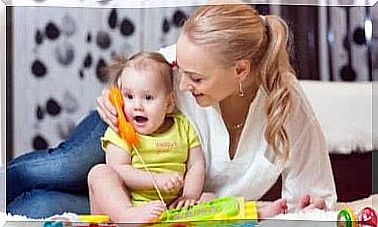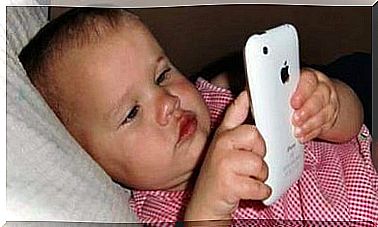Games To Develop Skills In Children
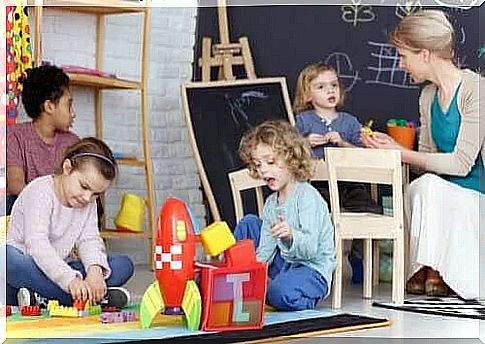
For young children, and specifically in an educational context, teachers base their teaching and learning activities on games to develop their skills. Play promotes imagination and creativity and allows children to learn without even realizing it, as they have fun throughout the process.
Types of games to develop skills in children
There are several games that can be classified depending on where you play them, for example. Some games can be played indoors, such as symbolic games or reasoning and logic games, while others can be played outdoors to develop physical and motor skills.
Games can also be classified depending on whether they are free and spontaneous or guided. In the first case, children let their creativity and imagination run free. In the latter case, a teacher sets specific rules for how the game is to be played.
On the other hand, the games are also classified according to the number of participants. There are games you can play alone, such as puzzles, and games that you play in pairs, as well as many other games that more than two children can play at once.
Play according to what skills they help to develop
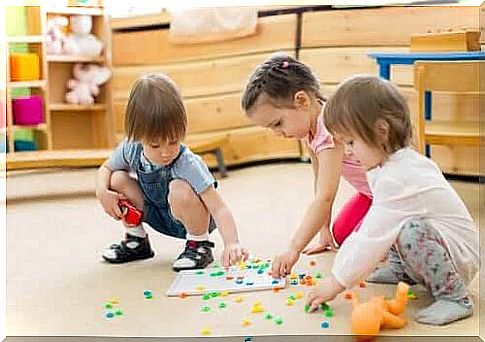
In addition, the games also vary depending on what skills they help to develop. Here are some:
- Games that use the senses. For example, identify sizes and structures or listen to natural sounds or animal sounds.
- Games that develop motor skills. These are about jumping, running, climbing up and down, etc.
- Manipulative or construction and assembly games. Practices catching, pressing, screwing, turning, clamping, snapping, emptying, refilling, balancing, etc.
- Symbolic games. They imitate real situations and represent roles, situations and people.
- Verbal games. Such as puzzles, riddles, stories and tongue twisters.
- Logical reasoning. Games such as puzzles, Tetris or chess lay the foundation for the development of the ability to perform calculations through mathematical concepts, such as using strategies, classification and correspondence.
- Games to train spatial relationships. These can be played in large spaces that include obstacles, gates, hiding places, measurements and distances.
- Games that develop temporary relationships. In these games, children can learn to differentiate seasons or parts of the day and their relationship to the activities they do. For example, children go to school in the morning and eat snacks in the afternoon.
The most important characteristics of games to develop skills
As you can see, there are many different games. They can be classified according to different criteria but in the end they all share some common characteristics that define their nature. These games:
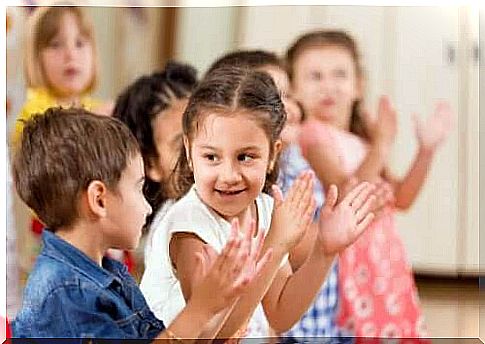
- Is a way to interact with the environment and reality.
- Has an inner purpose.
- Are spontaneous, voluntary and motivating.
- Enables children to develop both mental and physical abilities, which helps to gradually build an identity and autonomy.
- Is an educational resource because they favor an increasingly complex and intricate learning. Allows children to acquire new skills, abilities, behavior patterns and values.
- Is a source of pleasure, satisfaction, entertainment and a way to have fun.
- Allows children to freely express their feelings and moods.
- Bridging the gap between children with different backgrounds, is inclusive and rehabilitative.
- Allows children to relate to others and promotes socialization.
- Develops children’s imagination and ability to imitate so that they can create fictional realities.
Play and education in early childhood
Education during early childhood refers to the teaching of children from birth to the age of six. This stage consists of two stages. The first extends from birth to three years of age, while the second extends between the ages of three and six years.
It is a critical period in children’s growth. For children at this age, games are the perfect way to organize teaching, learning processes and content.
Games that develop skills in children gradually promote the development of social, emotional, cognitive, physical and motor areas. In particular, during this training stage, games develop the following skills:
- Linguistic. Enriches vocabulary and improves oral expression and comprehension.
- Physical-kinesthetic. They help to develop gross and fine motor skills and body control.
- Mathematical and logical. Through problem solving, focus and memory.
- Spatial-temporal. By practicing space, orientation and visual memory.
- Musical. Through discrimination and hearing loss.
- Interpersonal. By promoting cooperation, communication, solidarity, teamwork and conflict resolution.
- Intrapersonal. By promoting the management of emotions and thoughts, children’s self-esteem, self-discipline, self-criticism, patience and responsibility.



